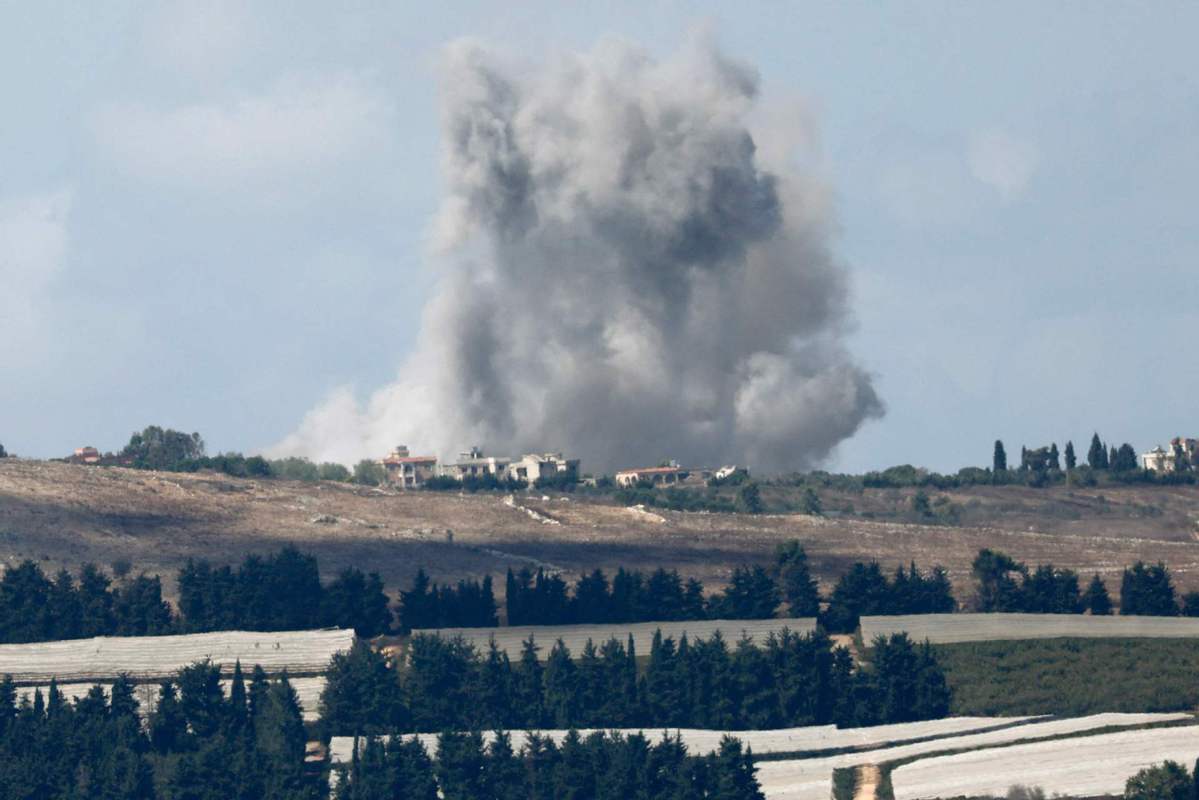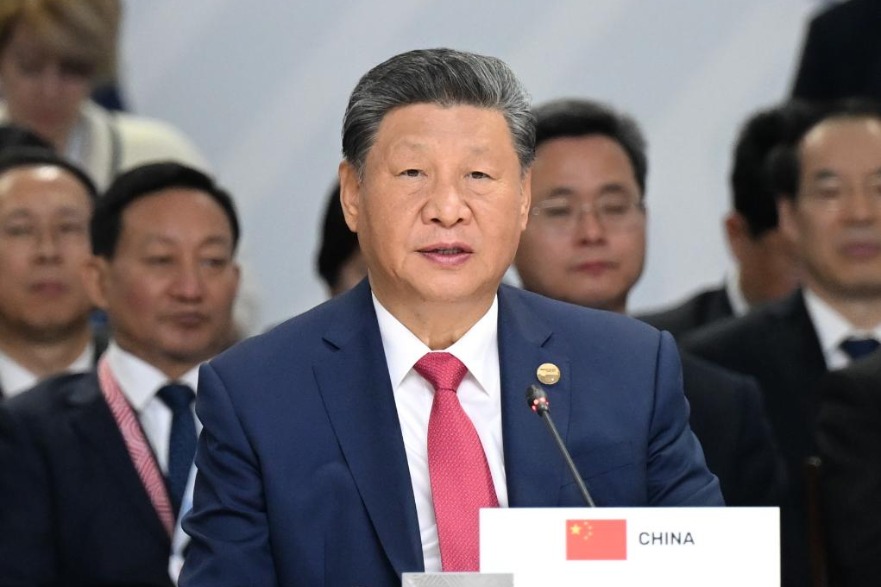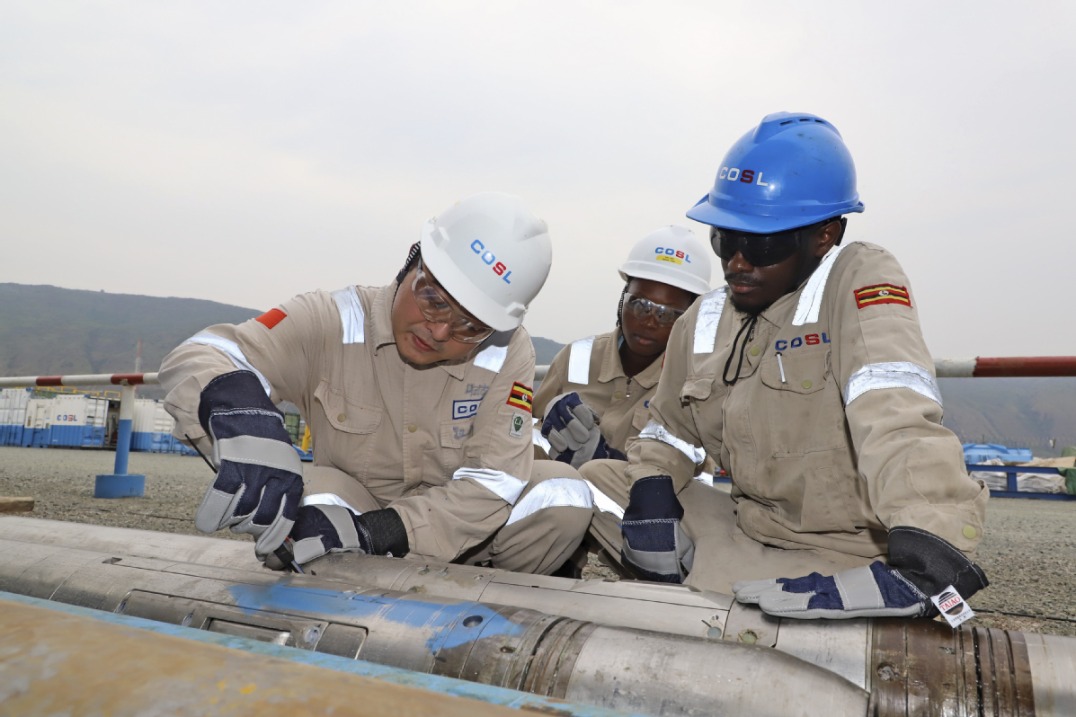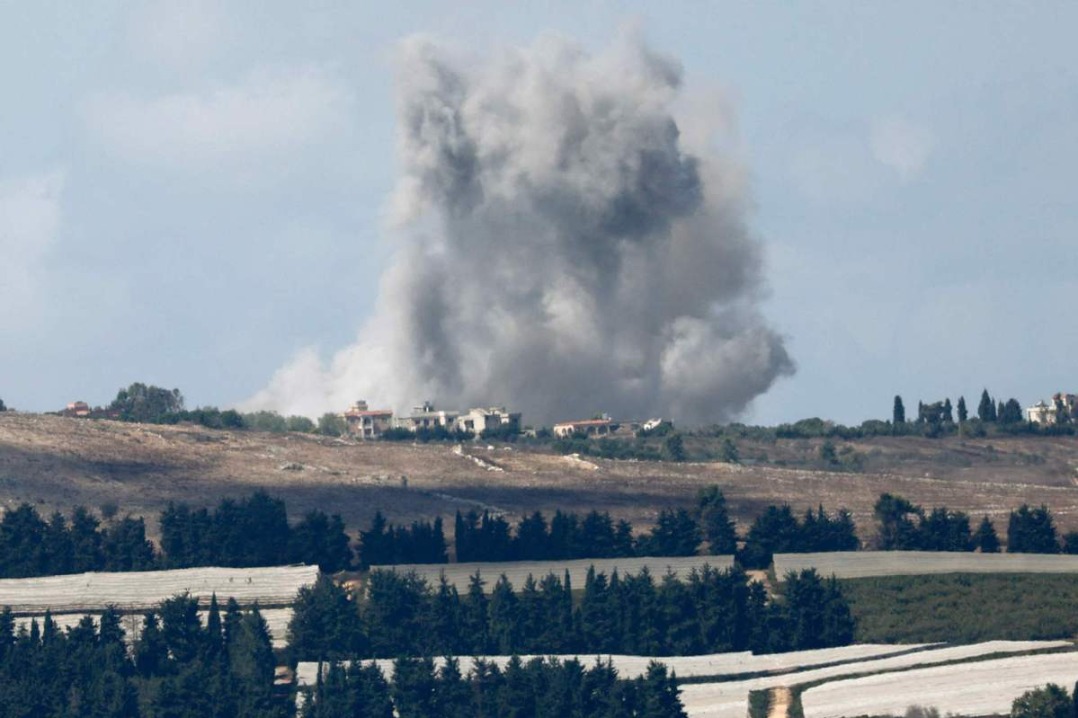Will Israel's strikes on Iran trigger an all-out Middle East war?


Editor's note: Israel confirmed that it had launched "precise strikes on military targets in Iran" early Saturday morning in retaliation for Iran's recent ballistic missile assaults. Given the already volatile chaos in the Middle East, will Israel-Iran conflicts escalate into an all-out Middle East war?Expert shares their views with China Daily. Excerpts follow:
A risky 'precise deterrence'
With tensions intensifying, a "sixth Middle East war" seems to be taking shape. Israel's various actions in this round of conflicts not only halt the normalization process in Israeli-Arab relations but also trigger an unprecedented coordinated response from the "axis of resistance" represented by Iran, engaging in direct confrontation with Israel. Hezbollah in Lebanon, Houthi rebels in Yemen and various Iraqi militia groups have also frequently launched missiles and drones into Israeli territory in an attempt to hinder Israel's military operations in the Gaza Strip.
The risks of war loom over the Middle East, but fortunately, up to now, other countries have shunned direct involvement in the conflicts. However, if Iran escalates further, it could truly escalate into a new Middle East war. The impact could be greater than the previous five wars because Iran is a major oil-producing country in the Persian Gulf region. This could trigger a new oil crisis and conflict, but so far, it has not reached that point.
This is partly why Israel's precision strikes are more about "precise deterrence", and the US may have played a big role in restraining Israel. The US has stated that it is not participating in the attacks. It should be noted that previous processes also included multiple rounds of consultations between Israel and US officials, including a phone call between Prime Minister Benjamin Netanyahu and President Joe Biden.
Ultimately, Israel chose to target only military installations and avoided oil and nuclear facilities. As the US is in a crucial stage of a presidential election, strikes on oil facilities would cause a surge in oil prices, dealing a blow to the global economy and posing a significant challenge for the Democratic Party. Not targeting nuclear facilities is mainly to prevent nuclear proliferation. Additionally, the current US administration does not want to provoke Iran's withdrawal from nuclear negotiations and the Non-Proliferation Treaty.
Therefore, Israel must strike a balance because not retaliating is insufficient to reinforce Israel and its allies' deterrence. For Israel, failing to retaliate would lead to increasing uncertainties in the Middle East by failing to intimidate various militias, state actors, or non-state actors in the future.
Due to an intelligence leak about US monitoring of Israel, it cannot be ruled out that the US intentionally leaked this information despite its vow to investigate. The leak could have allowed Iran to be somewhat prepared, enabling personnel to evacuate. The key was to minimize losses by evacuating critical equipment. If Israel were to inflict significant losses, Iran might react as it claimed to be prepared for the worst with at least 1,000 ballistic missiles ready. However, as long as the strike does not cause serious damage, Iran may not resort to a large-scale overreaction.
The US administration is being extremely cautious to avoid being dragged into the conflict, and Israel is also refraining from such actions. This is why they are playing a balancing act. The US has introduced the THAAD missile defense system in Israel and deployed new F-16 fighter jets in the Middle East operated by American personnel. The THAAD system is providing security guarantees for Israel and also serving as a deterrent against Iran. In short, Israel may currently not be inclined to take extreme actions because it relies on the US for military assistance and security assurances.
Israel chose to strike Iran on the Sabbath to achieve a tactical surprise. Hopefully, Israel's strikes focusing on several military targets outside the capital are more symbolic.
The Middle East needs to restore peace and cannot afford to take bigger risks of war.
Ma Xiaolin is the dean of and a professor at the Institute for Studies on the Mediterranean Rim at Zhejiang International Studies University.


































